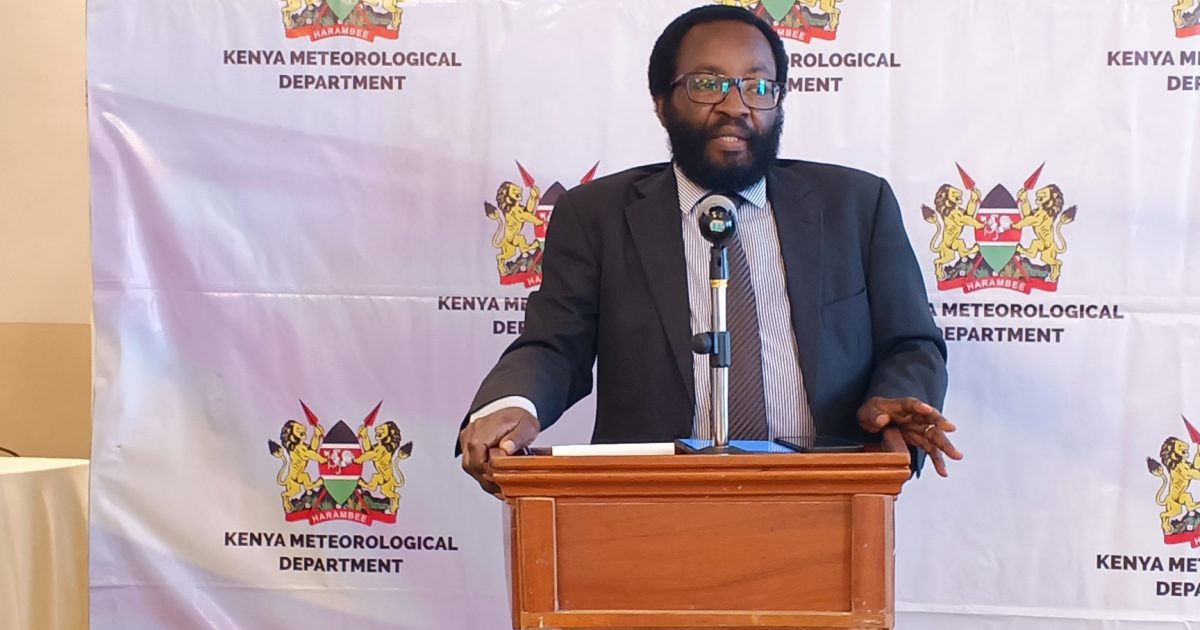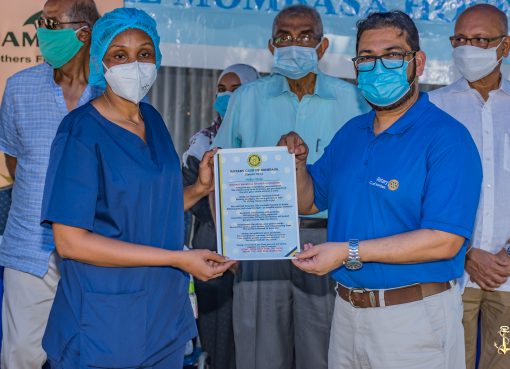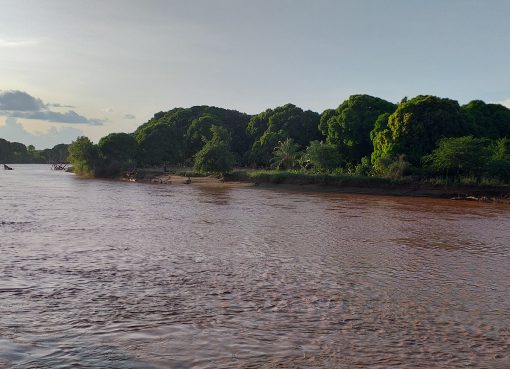Kenya is likely to experience depressed rainfall during the expected short rains season, spanning October to December 2024, due to a mild La Nina.
The Director, Kenya Meteorological Department Director Dr. David Gikungu made the remarks Wednesday, during a press conference at a Nakuru hotel, on the expected weather outlook for the next three months.
Dr. Gikungu further said the rainfall that has been pounding various parts of the country will reduce significantly in the last quarter of the year.
Consequently, several parts of the country will record significantly low amounts of rainfall due to near-average surface temperatures, over the western stretch of the Indian Ocean.
The Director indicated that the eastern stretch of the Indian Ocean (near Australia) is recording warmer than average sea surface temperatures.
“This constitutes a negative Indian Ocean Dipole (IOD) that is not favourable for good rainfall over most of East Africa.”
Equatorial Sea surface temperatures are also near-to-below average across the central to eastern Pacific Ocean, which implies that mild La-Nina conditions are present,” he added.
The reduced rainfall will peak in November as sunny and dry conditions are expected to prevail in December as the cessation begins.
“However, despite the depressed rains, isolated incidences of storms and flash are likely in some of the areas,” warned Dr. Gikungu
According to the climate outlook, counties that are likely to receive near-average to below-average rainfall include Busia, Vihiga, Kakamega, Bungoma, Kisumu, Siaya, Homa Bay, Nyamira, parts of Migori, Kisii, Kericho, West Pokot, Nandi, Bomet, Uasin Gishu, Trans Nzoia, Baringo, Elgeyo Marakwet, parts of Nakuru, parts of Narok, parts of Laikipia, Turkana and parts of Samburu.
Areas likely to receive below-average (depressed) rainfall include counties in Central Kenya (Nyandarua, Kirinyaga, Nyeri, Murang’a, Kiambu), Nairobi County; counties in the Eastern Region (Meru, Embu, Tharaka Nithi), some counties in southeastern Kenya (Machakos, Makueni and Kitui) and North Eastern Counties (Mandera, Wajir, Garissa, Marsabit and Isiolo).
Others are counties in the Coast Region (Mombasa, Kilifi, Kwale, Lamu and Tana River); counties in the South, North and Central Rift Valley (Kajiado, parts of Narok, parts of Laikipia, parts of Samburu and parts of Nakuru), and in South Nyanza (parts of Migori).
He said the many regions should brace for below-average rainfall and Kenyans were advised to put contingency plans and strategies to avert negative impacts of the suppressed rains.
In areas where the rainfall is expected to be depressed, farmers are also advised to liaise with the State Department for Agriculture to get advice on appropriate crops that are drought resistant in order to make the best use of the anticipated poor rainfall performance.
The Director further noted that temperatures are expected to be warmer than average across most parts of the country, except in areas in the western sector, where both maximum and minimum temperatures are anticipated to be near normal.
Dr. Gikungu said the Northwestern counties of Turkana, Western Samburu and parts of Northeastern, which mainly consists of pastoralists should consider destocking their livestock to minimize losses, since prolonged dry spells are likely and rainfall is expected to be poorly distributed in both space and time.
“Occasional light morning showers are expected along the Coastal strip, while the highlands East of the Rift Valley (including Nairobi County) are likely to experience occasional afternoon showers and cloudy conditions especially at the beginning of the month,” he said.
“Sunny and dry conditions are however likely to prevail over the Northeastern, Southeastern and the Coastal counties,” said Gikungu.
According to the forecast, the short rains are likely to begin between the third and fourth week of October in the counties located in Central Kenya as well as in Nairobi.
The cessation is predicted to fall on the fourth week of November and the first week of December 2024.
Counties in the Coastal strip, South Rift Valley, North-Eastern, Southern Kenya and parts of the Coast Region are likely to experience the onset of the rains in the fourth week of October and November, which will last until the third or fourth week of December.
“In the month of December, sunny and dry conditions are expected to prevail over several places as the cessation begins, while several parts of Western Kenya will continue experiencing rainfall from the month of September,” the outlook read.
By Veronica Bosibori




